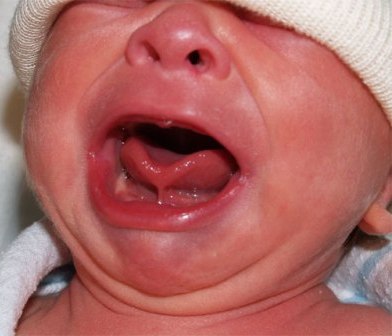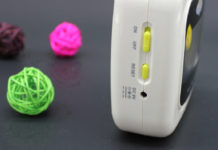Ankyloglossia or tongue tie is a congenital condition that some babies are born with, which can cause certain problems in new born babies as well as older children and adults. It is a condition that is said to exist when the membrane connecting the tongue to the floor of the mouth is unusually thick and abnormally short, preventing proper movement of the tongue.
Tongue tie is a condition that can affect and impede proper speech, oral hygiene and eating as well; as for the emotional impacts of such a speech impediment; those can be very significant as well.

In babies the problem may manifest itself quite early on and can prevent proper breast feeding since the tongue is prevented from being properly extended to create a proper latch on to the breast.
This could mean not only that the child is not getting enough to eat; the mother may also suffer nipple pain due to improper latching on which results in the baby chewing rather than sucking on the nipple.
As a child grows older, the tongue tie may represent other problems – he or she may not be able to use the tongue properly for eating and chewing due to its limited mobility and may delay and impede speech.
Tongue tie can run in families, so if the mother or father of a baby’s has had instance of the problem in close family they may want to look out for it if the baby shows any symptoms of tongue tie. The symptoms of ankyloglossia or tongue tie that one can look for in a baby, according to Mayo Clinic, are –
- A visibly short or thick frenulum, the name given to the membrane that connects the tongue to the floor of the mouth.
- Inability or difficulty in sticking the tongue out more than a millimeter or two past the front teeth.
- If the baby has trouble lifting the tongue to the upper teeth or if he seems unable to move it from side to side.
- If the tongue appears heart shaped or seems to be notched.
While parents should be careful not to jump to the conclusion of their baby being tongue tied just because he or she is having a problem latching on (some babies just take longer to learn the trick), they shouldn’t ignore visible symptoms either. Some doctors may advise having the problem corrected promptly, particularly if it is severe, while other may want to see if a child outgrows the condition.















